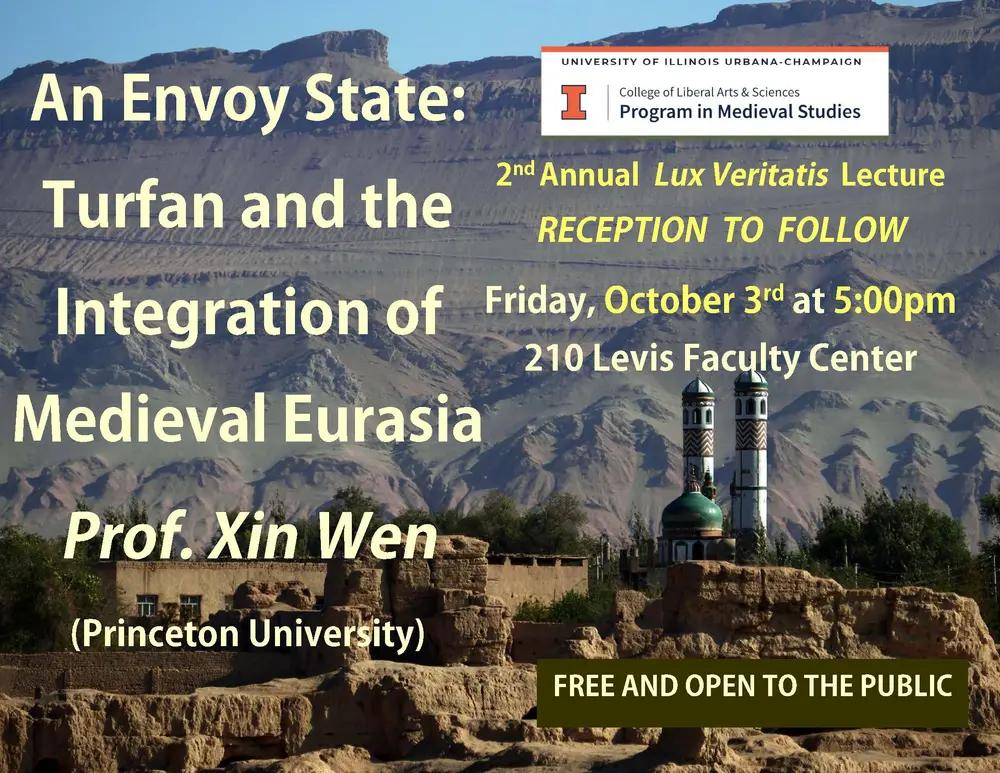
On Friday, October 3rd, Professor Xin Wen enthralled a large audience with an overview of his recent book and then presented a new case study to buttress its argument. That book, The King’s Road: Diplomacy and the Remaking of the Silk Road (2023), uses documents from the Dunhuang cave archive to reconstruct the lives, movements, and material conditions of professional travelers – diplomats and envoys – whose activities maintained the Silk Road as a nexus of knowledge transmission during the 9th and 10th centuries, after the breakdown of Sogdian merchant networks and despite a high degree of political fragmentation. One of the small but densely interconnected polities which made up this road was the subject of his presentation that evening: An Envoy State: Turfan and the Integration of Medieval Eurasia.
Large political entities such as the Byzantine and Tang empires are often seen as the main upholders and drivers of medieval trans-Eurasian connections. But even at the height of their powers, these empires controlled only small parts of this vast territory—so who was maintaining connections in the spaces between? This lecture focused on the Central Asian kingdom of Turfan from the fifth to the seventh centuries. Its history is known to us because its inhabitants clothed the bodies of their dead with used papers, including government documents, and its arid climate preserved these texts. From them, we can see that an extraordinary number of travelers from the Mediterranean, India, China, and the Steppe world converged in Turfan, not as a destination, but en route to other large states. To provide for their needs, the kingdom devoted outsized resources to receiving, accommodating, and protecting these travelers. In this way, Turfan fashioned itself into an “envoy state”: a state whose administrative functions disproportionately served travelers from other, larger states. States like Turfan were thus indispensable agents in maintaining the long-distance connections that enabled the cultural and political integration of early medieval Eurasia.